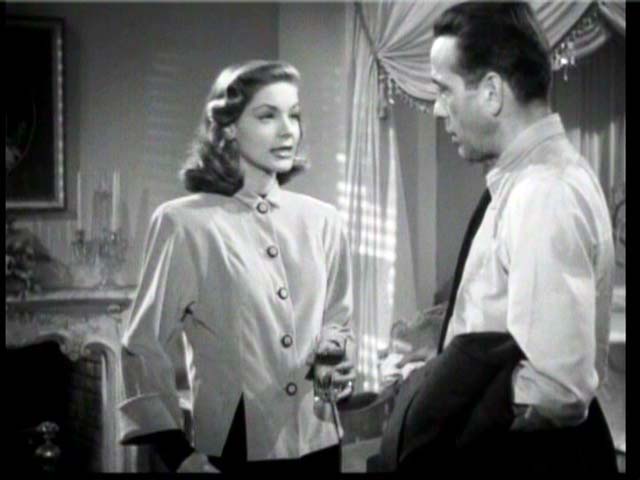Should we allow movies to pulverize the soft images in our brains of the books we’ve read, poor defenseless images that they are? A Guardian blogger thinks it’s time to fight back, and Scatter rummages around for a few thoughts.
 So, for the past few weeks we’ve talked about movies and we’ve talked about books, specifically books we were embarrassed to admit that we hadn’t read and then a little later movies that moved us to the max. Reading David Barnett’s book blog in the Guardian yesterday, I realized that some of the books I hadn’t read, books I might feel I should read under ordinary circumstances, didn’t occur to me. I’d seen the movie. This would involve the collected works of Jane Austen, for example. I just love those movies; never picked up a copy of Pride and Prejudice and probably never will. Though never is a long time. Strangely.
So, for the past few weeks we’ve talked about movies and we’ve talked about books, specifically books we were embarrassed to admit that we hadn’t read and then a little later movies that moved us to the max. Reading David Barnett’s book blog in the Guardian yesterday, I realized that some of the books I hadn’t read, books I might feel I should read under ordinary circumstances, didn’t occur to me. I’d seen the movie. This would involve the collected works of Jane Austen, for example. I just love those movies; never picked up a copy of Pride and Prejudice and probably never will. Though never is a long time. Strangely.
Barnett argues that ANY film version of a book, perhaps even including brilliant film versions, is an affront to the reader of the book, who has invested many hours of imaginative time over days or weeks or (gulp) months recreating the text in her/his head. Barnett’s key sentence:
Can there be anything worse than lovingly engaging with a couple of hundred thousand words of prose over perhaps two or three weeks, drinking in the author’s dialogue and descriptions, creating your own vision of the work in the privacy of your head, only to have every man and his dog (special offer on Tuesdays at your local Odeon) blast your intellectual ownership of the book out of the water after spending 90 minutes slobbing out in front of a cinema screen?
Here at Art Scatter we don’t believe in this sort of “intellectual ownership,” but we do think reading is a pretty sweet thing. And in comparing the way I approach movies to the way I approach books, I find that I am far more casual, generally, about the movie. I didn’t spend nearly as much time with Woody Allen’s Vicky Cristina Barcelona, to cite a very recent example as I did with Peter Nadas’s essays, but felt no reservation about plunking a post down about it for your reading enjoyment. I’d read and re-read those three Nadas essays many times, assembled notes, thought and thought, before I ventured to the keyboard. Would that movie withstand that sort of scrutiny? That’s another question. But some movies do.
 When I was a kid, maybe 10, I discovered J.F. Cooper’s Leatherstocking Tales and spent an entire summer engrossed in them, hundreds of pages of Deerslayer and Pathfinder and Last of the Mohicans, recreating the scenes in my head (Cooper described things lavishly, after all). I even enacted some of those scenes — or the spirit of those scenes — when I walked through the woods near my house and staged a puppet version of something, maybe Deerslayer the next year at school. It was hopeless: I couldn’t bring the woods and adventures and nobility lodged in my head to my little puppet theatre.
When I was a kid, maybe 10, I discovered J.F. Cooper’s Leatherstocking Tales and spent an entire summer engrossed in them, hundreds of pages of Deerslayer and Pathfinder and Last of the Mohicans, recreating the scenes in my head (Cooper described things lavishly, after all). I even enacted some of those scenes — or the spirit of those scenes — when I walked through the woods near my house and staged a puppet version of something, maybe Deerslayer the next year at school. It was hopeless: I couldn’t bring the woods and adventures and nobility lodged in my head to my little puppet theatre.
So, you know what happens next. The 1992 Michael Mann film version of The Last of the Mohicans with Daniel Day-Lewis and Madeleine Stowe comes out and plays constantly on cable pretty much from then on. I’ve seen it — or parts of it — many times, in part at least because of Mann’s landscapes, the woods and lakes and mountains, so much better than the backdrop drawings of my puppet theatre and, for that matter, so much more vivid and specific than my memories of the book. If we wanted to be strident about it, Mann big-footed my The Last of the Mohicans with his movie, colonized it, assimilated it, came close to annihilating it. Resistance was futile.
What Barnett reminds me of is just how fragile our reading memories are, how easily movies are superimposed on them, perhaps especially old reading memories. Unlike Barnett, I don’t think the filmmaker’s images necessarily debase either the book or my reading of it. His images simply replace mine because it’s so hard to fight them — our minds are better equipped to remember those images than the ones we conjure from text somehow.
Though now that I think of it, sequence might factor in, too. Sometimes I read a book after seeing the movie. The images in my head from the movie, so sharp at the beginning, start to soften. The real issues of the book might impose themselves as I read it over days and maybe weeks. But I saw Gary Cooper’s For Whom the Bell Tolls (Ingrid Bergman with short hair!) before reading the novel, and now I have only the faintest memory of reading the book. Ditto To Have and Have Not, admittedly a great movie and weak novel. Bergman and Bacall, Cooper and Bogart, I can still remember them distinctly.
What’s to be done? Avoid movies adapted from books we have read or might want to read? Meaning no Blade Runner? That sounds extreme. The nearest film equivalent to the reading experience is the miniseries — Brideshead Revisited churned out over the weeks, giving you time to ponder the characters and situations, to enter into the story actively, to build some anticipation for plot and character turns, a little like reading. I confess, I’m a sucker for these, especially when Jane Austen is involved! But then I apparently have no intention of actually reading Persuasion or Mansfield Park or even Emma.
My Scatter colleague Vernon is a re-reader. I think this is probably the best answer. It acknowledges that our reading memory is elastic not just fragile, that we read differently every time we read, that one of the pleasures of reading is how it measures our own course through life itself. No movie version of Herzog will replace his long relationship with the novel. Or come very close. I am a little worried about the Herzog miniseries I have in my head, though, because it’s really, really good and Vernon may not be able to resist it.
If we cut to the quick, we are talking about language and images (though film is also sound and language, too). Language generating images and images generating language, imagination on the one hand and description on the other. But these categories are so loose, so permeable, we know from personal experience. They leak into each other all the time, maybe because they depend on each other so much.
At the end of the day, Barnett is defending his own creativity and at the same time his own description from those of other creator/describers. And maybe he doesn’t really have to worry about that so much.
By the way, the comments to original link are pretty entertaining, getting into various movie/book issues and worth a quick cruise.